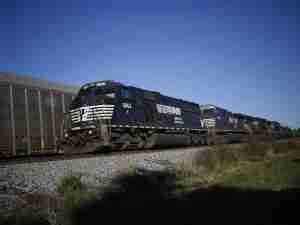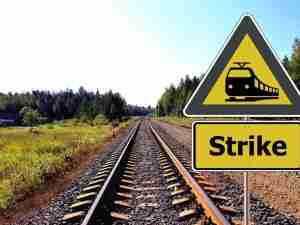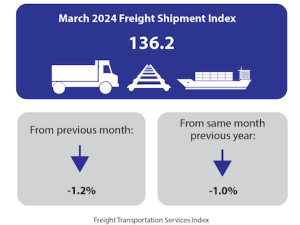Maine has no plans to halt oil rail shipments after Quebec tragedy
posted by AJOT | Jul 07 2013 at 08:00 PM | Intermodal
Maine has no plans to review shipments of crude through the state on rail lines after a deadly oil train derailment just across the border in Quebec's Lac-Megantic over the weekend, the state's Department of Transportation said.
The train was hauling about 50,000 barrels of crude from North Dakota's Bakken shale development to Irving Oil's 300,000 barrel per day (bpd) plant in Saint John, New Brunswick.
A derailment and explosion early on Saturday near the small town of Lac-Megantic killed five people, and another 40 people are still missing, authorities said.
Nearly 30,000 bpd of crude crossed through Maine in March, up from under 2,000 bpd a year earlier, as part of a surge in oil by rail transit caused by the U.S. shale boom. The growth in oil shipments through Maine has caused protests among environmental groups in the state.
Ted Talbot, spokesman for the Maine Department of Transportation, called the Quebec accident "tragic," but said the state had no plans to review movements of crude oil through Maine.
"It's on the same parallel as a tractor-trailer accident. It's private commerce and we don't get involved," Talbot said.
"There's no appetite to curb or otherwise alter the shipments of crude in Maine," he said.
Protests
While the cause of the disaster, which occurred on a Montreal, Maine & Atlantic Railway, has yet to be determined, environmentalists in Maine were quick to highlight the disaster as a wakeup call to the risks of the burgeoning transport trade that they have been protesting.
In the sleepy central Maine town of Fairfield on June 27, six protesters were arrested blocking tracks belonging to Pan Am Railways, just north of a yard where protesters alleged a train carrying Bakken crude was stationed.
Environmental group 350 Maine planned to hold a news conference at Montreal, Maine & Atlantic Railway's Bangor, Maine headquarters.
All of Maine's seven active freight railways are authorized to ship petroleum products, say transportation officials, though only two - Pan Am and Montreal, Maine and Atlantic - reported shipping crude in the past two years.
For companies like Pan Am, which shipped 2.3 million barrels of U.S. crude last year, the shipments are one way to offset its flagging coal transport business.
Talbot said that any discussions to change or improve safety for rail procedures would start at the federal level.
"Up to the point that the public outcry demands a reaction, government will stay out of private commerce," he said.
"When a crash happens, you hear about it, but you don't hear about the many successful loads that pass through the state every day." (Reuters)







